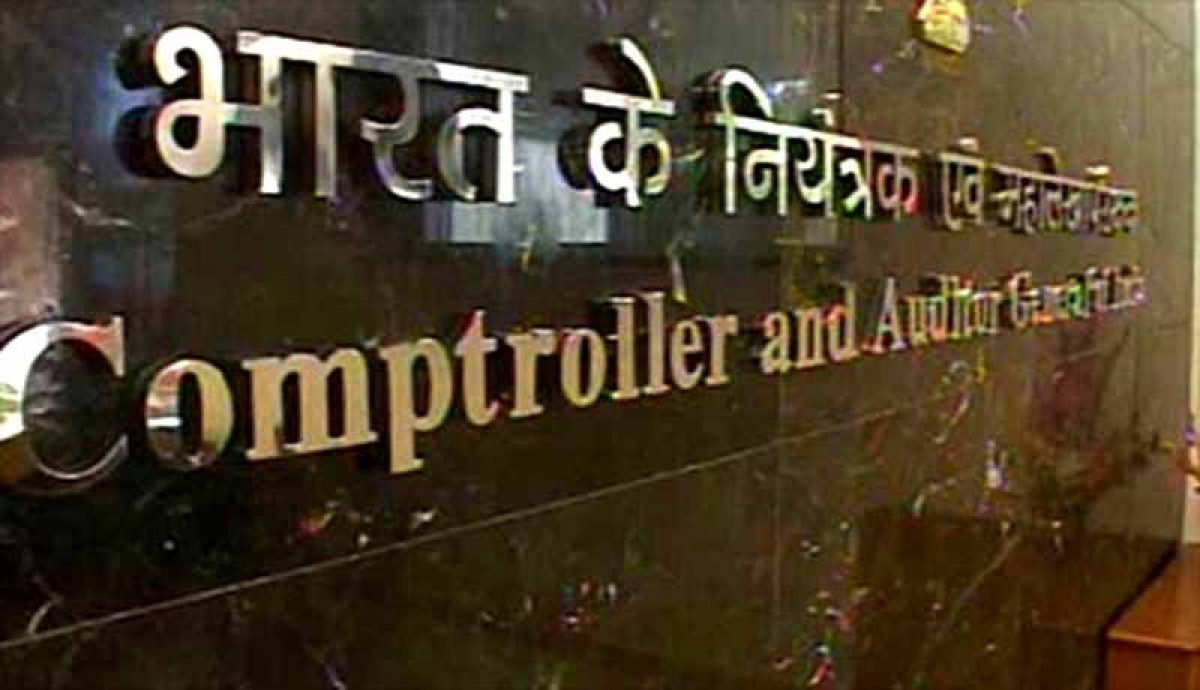COMPTROLLER AND AUDITOR GENERAL OF INDIA (CAG)
2020 OCT 28
Mains >
Polity > Institutions/Bodies > Constitutional Bodies

WHY IN NEWS:
- Comptroller and Auditor General (CAG) has found that the Union Government, in the first two years of the GST implementation, wrongly retained Rs 47,272 crore of GST compensation cess that was meant to be used specifically to compensate states for loss of revenue.
ABOUT CAG
- Constitutional Body:
- Article 148 provides for an independent office of the CAG. It is the supreme audit institution of India.
- Appointment:
- Appointed by the President of India by a warrant under his hand and seal.
- Tenure:
- A period of six years or upto the age of 65 years, whichever is earlier.
- Removal:
- CAG can be removed by the President on the same grounds and in the same manner as a judge of the Supreme Court. He does not hold his office till the pleasure of the President.
- Other key points:
- Guardian of the public purse and controls the entire financial system of the country at both the levels–the Centre and the state.
- One of the bulwarks of the democratic system of government in India.
- Not eligible for further office, either under the Government of India or of any state, after he ceases to hold his office.
- Salary and other service conditions are determined by the Parliament.
- The administrative expenses of the office of the CAG, including all salaries, allowances and pensions of persons serving in that office are charged upon the Consolidated Fund of India (thus are not subject to the vote of Parliament).
- No minister can represent the CAG in Parliament.
- Duties and Powers as under the CAG’s (Duties, Powers and Conditions of Service) Act, 1971:
- Audits the accounts related to all expenditure from the Consolidated Fund of India, consolidated fund of each state and consolidated fund of each union territory having a Legislative Assembly.
- Audits all expenditure from the Contingency Fund of India and the Public Account of India as well as the contingency fund of each state and the public account of each state.
- Audits profit and loss accounts, balance sheets and other subsidiary accounts kept by any department of the Central Government and state governments.
- Audits the receipts and expenditure of the following:
- Bodies and authorities substantially financed from the Central or state revenues;
- Government companies; and
- Other corporations and bodies, when so required by related laws.
- Audits the accounts of any other authority when requested by the President or Governor. For example, the audit of local bodies.
- Acts as a guide, friend and philosopher of the Public Accounts Committee of the Parliament.
ISSUES
- No role as a Comptroller:
- CAG has no control over the issue of money from the consolidated fund
- Departments are authorised to draw money by issuing cheques without specific authority from the CAG, who is concerned only at the audit stage when the expenditure has already taken place.
- Issues in appointment:
- No criterion or procedure prescribed either in the Constitution or in the statute for the appointment of CAG.
- This has given the sole power to the executive to appoint a person of their choice as the CAG
- Exemptions:
- The Life Insurance Corporation of India and public sector banks are outside his purview.
- Direct transfer of government funds to local autonomous bodies.
- Auditing of public-private partnerships projects are largely exempted
- Funds instituted outside CAG’s mandate such as Prime Minister’s National Relief Fund, PM CARES Fund etc.
- Government’s increased depending on off-budget borrowings to fund capital expenditure and even revenue expenditure diminishes the role of CAG
- For example National Investment and Infrastructure Fund is not audited by CAG
NOTABLE ROLES PLAYED:
- Unearthing corruptions:
- CAG was instrumental in unearthing the coal scam in 2015. A report by the office showed inefficient and possible illegal allocation of coal blocks
- Similar was the case with respect to the 2G scam, where the CAG report revealed that the 2G licenses had been issued to telecom operators at throwaway prices causing huge loss to exchequer
- Pointing out inefficiencies:
- The audit by CAG has revealed issues in the functioning of railways, its report on many government entities has showed the state of poor efficiency in Government enterprises.
- National security:
- The audits have also shown the shortages in defence ammunitions and war fighting abilities despite huge spending on defence sector.
- Such findings of the lack of financial prudence have created debates, public scrutiny and improved attention
- Guarding fiscal federalism:
- CAG reported that central government wrongly retained Rs 47,272 crore of goods and services tax (GST) compensation in the Consolidated Fund of India in 2017-18 and 2018-19 and used it for other purposes
- CAG says the amount was to be credited to the non-lapsable GST Compensation Cess collection fund - part of Public Account - for payment to states for loss of revenue due to implementation of GST since 2017, but the government did not do so, thus violating the GST Compensation Cess Act 2017.
BEST PRACTICES:
- CAG of Britain
- He has powers of both Comptroller as well as Auditor General.
- In other words, in Britain, the executive can draw money from the public exchequer only with the approval of the CAG.
PRACTICE QUESTION:
Q. ‘There needs to be an enhanced role for the CAG for a comprehensive financial oversight over not only direct government departments, but also over autonomous and statutory entities’. Comment
